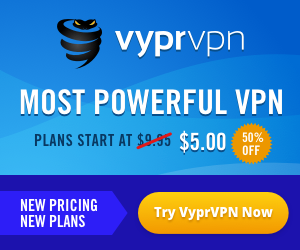In our reviews, we always note a provider’s privacy policy. While no-logging policies are good, they’re not guarantees of privacy. Here are some things you should know about your VPN service and staying anonymous online.
First, Privacy and Anonymity Are Different Things
 The difference in everyday usage is minor, to be sure, but privacy and anonymity do have different meanings that you should be familiar with as an informed consumer.
The difference in everyday usage is minor, to be sure, but privacy and anonymity do have different meanings that you should be familiar with as an informed consumer.
In the simplest terms, VPNs can vastly increase your privacy, but it’s nearly impossible to be totally anonymous on the Internet. Even Bitcoin, generally treated as if it’s a guarantee of completely private transactions, can be tracked.
In addition to technological flaws, anonymity can be defeated by simple investigation. The VPN service you buy, provided you’re not using a cryptocurrency, is likely purchased with an account linked to your email, name, and eventually address and other information.
VPNs increase your level of privacy, but being anonymous online is basically impossible. If someone wants to badly enough, they can likely figure out who you are and where you’re located.
A VPN provider’s privacy policy is important, but none of them will hide your identity completely.
Logging Isn’t Always Bad and PoliciesAren’t Always Straightforward
On our reviews, you’ll see instances where a provider says that they do not log, but when we check the fine print, we find that they do or, at least, that they appear to do some logging.
Not all logging is bad. VPN providers have to maintain their networks and, to do so, they need access to data about network performance. Providers that offer metered accounts have to be able to track how much data their users transfer and have to link that to an account for billing.
At the very least, the VPN provider needs to know when you log on or off their network. Most services, for instance, offer a limited amount of simultaneous connections to their network. Clearly, they have to know if you’re using the service to determine whether or not you’re using all of your available connections.
For privacy, shared IPs are sometimes better than no-logging policies. Shared IPs make it basically impossible for a provider to know who was downloading what over their network. Even if they do get a complaint, the provider will have no idea to whom it should be sent.
You Can Help
If you’re really concerned about privacy, and want to make life easier for your VPN provider, you can exercise some common sense measures to protect both of you.
For instance, some nations have very privacy-positive policies as far as tracking user data goes. Sweden and the Netherlands are good examples.Some Latin American nations are also good choices.
If you’re doing something over a VPN that you want to keep as private as possible, connect to a nation where the privacy laws are very favorable to users. This makes it easier for your VPN provider to protect you.
The US, it should be noted, is not a privacy-friendly jurisdiction, though it lacks the awful data retention laws that some EU nations are saddled with.
Safeguarding Your Privacy
Here are some simple tips you can follow to give yourself the best possible level of privacy:
• Know your VPN provider’s logging policy, but connect to overseas servers for P2P, even if your provider doesn’t log
• Bitcoin is excellent for privacy, but realize that those transactions can be tracked
• Shared-IP policies are excellent for privacy
• Use a kill switch to prevent P2P programs from connecting unprotected
• Read your provider’s entire privacy policy and, if you’re not comfortable with it, switch to a different one
Most importantly, when you’re on the Internet, remember that you’re never truly anonymous. You can increase your overall level of privacy, but if someone wants to badly enough and they have the resources to do it, they can probably track you down.


Leave a Reply